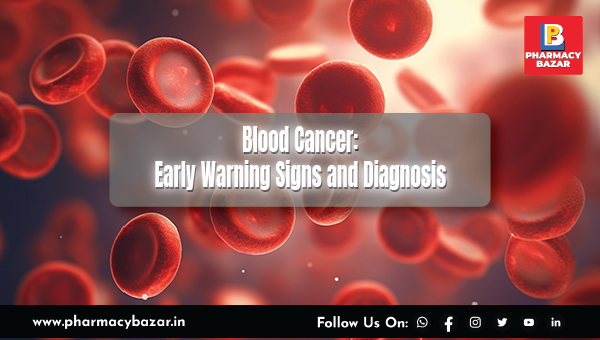Revolutionizing Cancer Treatment: How Unleashing T Cells' Energy Could Transform Immunotherapy
Jun 27, 2024
T cells, often called the body's "assassins" or "killers," are remarkable immune cells designed to seek and destroy harmful invaders like bacteria, viruses, and cancer cells. Despite their formidable power, T cells face a significant challenge when they enter the hostile environment of a solid tumor. Here, their energy levels plummet, rendering them ineffective against the malignancy.
In a groundbreaking study, a research team led by Jessica Thaxton, PhD, MsCR, associate professor of cell biology and physiology and co-leader of the Cancer Cell Biology Program at the UNC Lineberger Comprehensive Cancer Center, sought to uncover the reasons behind this energy loss. Thaxton, along with Katie Hurst, MPH, and fourth-year graduate student Ellie Hunt, turned their focus to a metabolic enzyme called Acetyl-CoA Carboxylase (ACC). They discovered that ACC prompts T cells to store fat instead of burning it for energy, thus depleting their ability to fight cancer.
"Our discovery fills a long-standing gap in knowledge regarding why T cells in solid tumors don't appropriately generate energy," said Thaxton. "We inhibited the expression of ACC in mouse cancer models, and we observed that T cells were able to persist much better in solid tumors."
These findings, published in Cell Metabolism, have the potential to significantly enhance T-cell therapies for cancer patients, including both checkpoint and chimeric antigen receptor (CAR) T-cell therapies.
In the realm of cancer immunotherapy, it's long been understood that T cells struggle to produce the cellular energy, adenosine triphosphate (ATP), needed to combat cancer when within solid tumors. In 2019, Thaxton's lab identified key enzymes linked to optimal antitumor metabolism in T cells through a proteomics screen. This screen revealed that ACC expression hinders T cells' ability to generate ATP, as it prevents fat from being used as fuel in mitochondria.
"Acetyl-CoA carboxylase can drive the balance between storing lipids versus breaking down those lipids and feeding them into the citric acid cycle for energy," explained Thaxton. "If ACC is flipped 'on', cells generally store lipid. If ACC is 'off', cells tend to use the lipid in their mitochondria to make ATP."
By leveraging Hunt's expertise in confocal imaging, the team observed lipid stores in T cells isolated from various cancers. These observations, supported by additional experiments, confirmed their hypothesis that T cells were storing lipids instead of breaking them down for energy.
The research team then employed CRISPR Cas9-mediated gene deletion to remove ACC from the equation. The result was a rapid decrease in lipid storage within T cells, enabling the team to visualize the relocation of fat to the mitochondria for energy production.
Thaxton hypothesizes that T cells need a "delicate balance" of lipids to remain effective in solid tumors, with a specific amount of lipid dedicated to combating cancer cells while maintaining low levels of stored fats.
This discovery could significantly boost the efficacy of CAR T-cell therapies. This advanced technology involves modifying T cells in the lab to target tumor cells before reinfusing them into the patient. Preliminary data from Thaxton's lab shows that even these engineered T cells accumulate excess lipids.
Moving forward, the lab is exploring ways to flip the ACC metabolic switch directly within patient tumors, potentially eliminating the need for cell extraction and reinfusion. However, researchers must first understand how this approach could impact other immune cells, such as macrophages.
In conclusion, this innovative research offers a promising new avenue for improving cancer immunotherapy. By targeting the metabolic pathways of T cells, scientists may unlock new potentials in the fight against cancer, bringing hope to countless patients worldwide.
DISCLAIMER:
This article is the property of Pharmacy Bazar and is protected by copyright laws. The information provided in this article is for educational and informational purposes only and is not intended to be a substitute for professional medical advice, diagnosis, or treatment. Always seek the advice of a qualified healthcare provider with any questions you may have regarding a medical condition. Never disregard professional medical advice or delay in seeking it because of something you have read in this article. The author and publisher of this article do not endorse any specific treatments, procedures, or products mentioned in this article.
Recent Post

Blood Cancer: Early Warning Signs and Diagnosis

Understanding Gallstones: Causes, Symptoms, and Treatment Options

Navigating Diabetes Medications: Benefits and Side Effects

The Power of Lower Back Stretches: Benefits and Best Yoga Asanas for a Healthy Spine

8 Health Conditions That Could Be Due to Magnesium Deficiency

Unlocking Brain Health: How Lifestyle Choices Impact Cognitive Functions

When Speech Takes a Surprising Turn: Unraveling Foreign Accent Syndrome

The Optimal Time to Take Your Vitamin D Supplement: Insights and Best Practices

Beyond Diabetes: Unveiling the Hidden Health Risks of Insulin Resistance

India's Pharmaceutical Rise: From $65 Billion to $130 Billion by 2030 - A Journey of Growth and Opportunities

